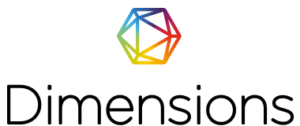ANALISIS KEEFEKTIFAN GOOGLE CLASSROOM DALAM PEMBELAJARAN DARING
DOI:
https://doi.org/10.32585/absis.v3i1.1376Keywords:
Google Classroom, Online learningAbstract
This study aims to determine the level of effectiveness google classroom in online learning. This research uses quantitative methods through a google form questionnaire and is followed by quantitative descriptive data analysis. The population of this study were students of class XII SMA Veteran 1 Sukoharjo with a sample of 23 students from class XII BB. Based on the research, the average value of student learning outcomes was 79.348 with the high category. There were 21 students who completed and there were 2 people who had not completed or did not meet the completeness score of 70. The results of student responses after being distributed by the questionnaire via google form showed that the percentage value of student responses was 60.87% in the moderate category. Based on the results of research and discussion, the level of effectiveness of Google Classroom is quite effective for delivering material, delivering and collecting assignments.
Downloads
References
Al-Maroof, R. A. S., & Al-Emran, M. (2018). Students acceptance of google classroom: An exploratory study using PLS-SEM approach. International Journal of Emerging Technologies in Learning. https://doi.org/10.3991/ijet.v13i06.8275
Apriana, A., & Hidajat, D. (2020). Analysis of Google Classroom ’ s Online Learning Motivation on Mathematics Subjects. Journal of Mathematical Pedagpgy; ISSN 2715-7458; E-ISSN 2715-7466, 2(1), 18–25.
Fitriasari, N. S., Apriansyah, M. R., & Antika, R. N. (2020). Pembelajaran Kolaboratif Berbasis Online. Inspiration: Jurnal Teknologi Informasi Dan Komunikasi. https://doi.org/10.35585/inspir.v10i1.2564
Graham, M. J., & Borgen, J. (2018). Google Classroom. In Google Tools Meets Middle School. https://doi.org/10.4135/9781506360188.n3
Gunawan, F. I., & Sunarman, S. G. (2017). Pengembangan Kelas Virtual dengan Google Classroom dalam Keterampilan Pemecahan Masalah (Problem Solving) Topik Vektor pada Siswa SMK untuk Mendukung Pembelajaran. Prosiding Seminar Nasional Etnomatnesia.
Hanum, N. S. (2013). Keefetifan E-learning sebagai Media Pembelajaran (Studi Evaluasi Model Pembelajaran E-learning SMK Telkom Sandhy Putra Purwokerto). Jurnal Pendidikan Vokasi. https://doi.org/10.21831/jpv.v3i1.1584
Iftakhar, S. (2016). Google Classroom: What Works and How? Journal of Education and Social Sciences.
Jamilah, M. (2020). Dampak Pembelajaran Daring di Tengah Pandemi COVID 19 pada Siswa Sekolah Dasar. Jurnal STKIP PGRI Sumenep.
Kurniawan, A., Prabowo, G., & Falahudin, T. (2020). Media Pembelajaran Berbasis Google Classroom. Auto Tech: Jurnal Pendidikan Teknik Otomotif Universitas Muhammadiyah Purworejo. https://doi.org/10.37729/autotech.v15i2.528
Kurniawati, M., Santanapurba, H., & Kusumawati, E. (2019). Penerapan Blended Learning Menggunakan Model Flipped Classroom Berbantuan Google Classroom dalam Pembelajaran Matematika. EDU-MAT: Jurnal Pendidikan Matematika. https://doi.org/10.20527/edumat.v7i1.6827
Naserly, M. K. (2020). Implementasi Zoom, Google Classroom, dan Whatsapp Group dalam Mendukung Pembelajaran Daring (Online) pada Mata Kuliah Bahasa Inggris Lanjut. Journal of Chemical Information and Modeling.
Nurlayli, Hidajat, D., & Primasari, E. (2021). Analisis Video Pembelajaran Daring dalam Permasalahan Sistem Persamaan Linear Tiga Variabel. Jurnal Gema Pendidikan; P-ISSN: 0854-9044; E-ISSN: 2684-866X, 28(1), 33–41.
Setyadi, D., & Qohar, A. (2017). Pengembangan Media Pembelajaran Matematika Berbasis Web pada Materi Barisan dan Deret. Kreano, Jurnal Matematika Kreatif-Inovatif. https://doi.org/10.15294/kreano.v8i1.5964
Shaharanee, I. N. M., Jamil, J. M., & Rodzi, S. S. M. (2016). Google Classroom As a Tool for Active Learning. AIP Conference Proceedings. https://doi.org/10.1063/1.4960909
Sjukur, S. B. (2013). Pengaruh Blended Learning terhadap Motivasi Belajar dan Hasil Belajar Siswa di Tingkat SMK. Jurnal Pendidikan Vokasi. https://doi.org/10.21831/jpv.v2i3.1043
Wa Linda. (2020). Efektivitas Penggunaan Google Classroom Sebagai Media Pembelajaran. Skripsi.
Wulantina, E., & Sugama, M. (2019). Persepsi Peserta Didik terhadap Metode Blended Learning dengan Google Classroom. Jurnal Inovasi Matematika. https://doi.org/10.35438/inomatika.v1i2.156
Downloads
Published
How to Cite
Issue
Section
License
Authors who publish with the Absis: Mathematics Education Journal agree to the following terms:
- Authors retain copyright and grant the journal the right of first publication with the work simultaneously licensed under a Creative Commons Attribution License (CC BY-SA 4.0) that allows others to share the work with an acknowledgment of the work's authorship and initial publication in this journal.
- Authors are able to enter into separate, additional contractual arrangements for the non-exclusive distribution of the journal's published version of the work (e.g., post it to an institutional repository or publish it in a book), with an acknowledgment of its initial publication in this journal.
- Authors are permitted and encouraged to post their work online (e.g., in institutional repositories or on their website) prior to and during the submission process, as it can lead to productive exchanges, as well as earlier and greater citation of published work.







